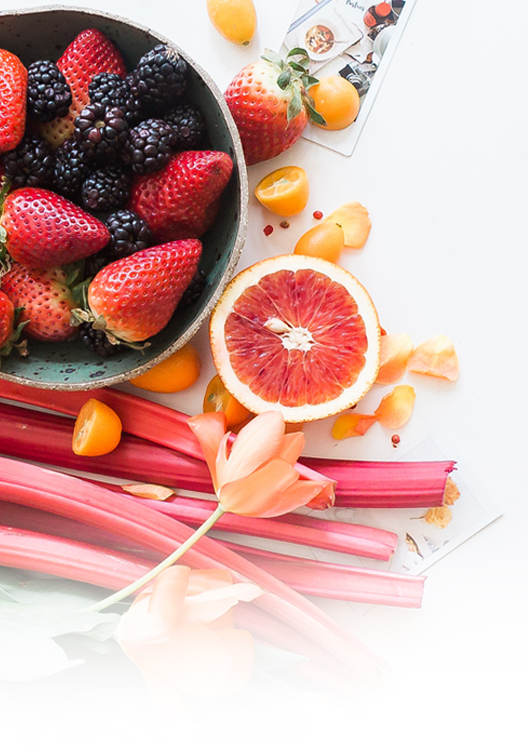Our society has become so diet crazed, it’s almost an American obsession to talk about what latest diet someone is following. Just pick up one of the latest magazines on the newsstand and it will list what all the celebrities are following. The majority of them being crazy, restrictive diets and cleanses that starve your body or have you eat so rigidly. Not to mention, the diets out there that have you eat their food or drink their shakes in replacement of a meal. This time of year we are especially bombarded with it. Eating food that has little to no taste, being hungry all day and drinking a meal instead of eating one, are complete set ups to failure.
A few years back, I had a wellness doctor ask my opinion on what my thoughts were about a diet that he was creating. It essentially was a very specific food plan that eliminated certain foods until you reached your desirable weight and then slowly added certain foods back in phases. This diet specifically concentrated on foods that caused inflammation, such as wheat and sugar. When I asked him what happens when someone goes back to their old ways with food, the response was, “they will feel so good, and they won’t ever want to go back to how they were eating.” Really?? This is sadly how a lot of people and unfortunately, a lot of medical professionals (not all of them), feel about following a diet. Once you lose the weight, you’ll never want go back to how you were. But the reality is, people do go back to how they were. And it isn’t because they wanted to. People who diet cycle have a relationship issue with food. The relationship is ignored when they are “following” a diet. They are being told what, when and how much to eat. They “follow the rules” rather than find their own way because to some degree this feels safer. Often times, there isn’t the trust in listening to themselves. That’s been ruined by the years of ignoring their body’s cues. So following a diet seems like the only way.
People will say they didn’t have the willpower, or that they got sick of the food (duh) or that they had such a craving for something that wasn’t on the diet, that they “blew it”. This creates an all or nothing mentality with food. So if the list is ever deviated from, it feels like failure and often an “F-it” mode is taken. And so the downward spiral begins, with guilt and shame joining the ride. This can last a person’s lifetime if they let it, climbing on and off the diet cycle.
I want to clarify that this mentality or relationship with diets isn’t the same for everyone. I have a good friend who decided that she wanted to try the Whole 30 diet for the month of January. For those of you who do not know what the Whole 30 is, it is an eating plan that in a nutshell is super clean eating. Now, there can be a benefit with trying an eating pattern that allows you to eliminate certain foods and see how your body reacts when you add them back in. When you have a good relationship with food, you can treat this as data and really just listen to what your body is saying. This would be the case of my friend. She wanted to do it for purely health reasons, to see what her body would say. Her husband, on the other hand, said that the thought of following that diet made him want to drive straight to a fast food drive through. This highlights the difference that can be there when it comes to the relationship of food. Someone who does not have a balanced relationship with food will see any eating plan as a “diet” and automatically feel a state of deprivation.
So what do you do with all of the information? One of the biggest messages I try to send is when you look at what you are eating, ask yourself, are you honoring your body? This can be a really different concept to take when we apply it to food. But if we start asking, “Is this a loving choice?”, “Do I feel like I am treating my body kindly?” this can really shift our choices. I had a client that always loved having potato chips with lunch. She “needed” the crunch. The thought of not having this felt really depriving because of her long history of diets and she would rebel whenever we talked about changing things. But when I challenged her to look at “honoring” herself and what felt like the most “loving” choice, she was able look at things differently. The next week she came in and reported that when she thought about eating chips vs carrots in that way, she chose carrots instead of the chips because it felt loving, not depriving and still got her the crunch she desired. This does not mean that every time is going to be the “healthier” choice. But when we stop looking at things as “I can’t have that” and stop feeling deprived, things can shift and we can look at things differently. The language with ourselves is everything and we can create a better relationship with food and ourselves when we talk kinder.
The goal is to stay out of the all or nothing thinking. Find the grey space. Eating the cookie with lunch does not undo the whole day. It’s the mentality that goes with it, that does. My philosophy with food is to aim for 90% of what you eat to be wholesome, nutritious food. BUT you need a bubble. A bubble that includes chips, pizza, ice cream, the cookie. That is the “soul food”, the food that just tastes good. And there may be a day that has more than 10% but that doesn’t have to derail everything. It’s a day. There can be balance-a middle ground. So get out of black and white. Things are so much sweeter in the grey.

